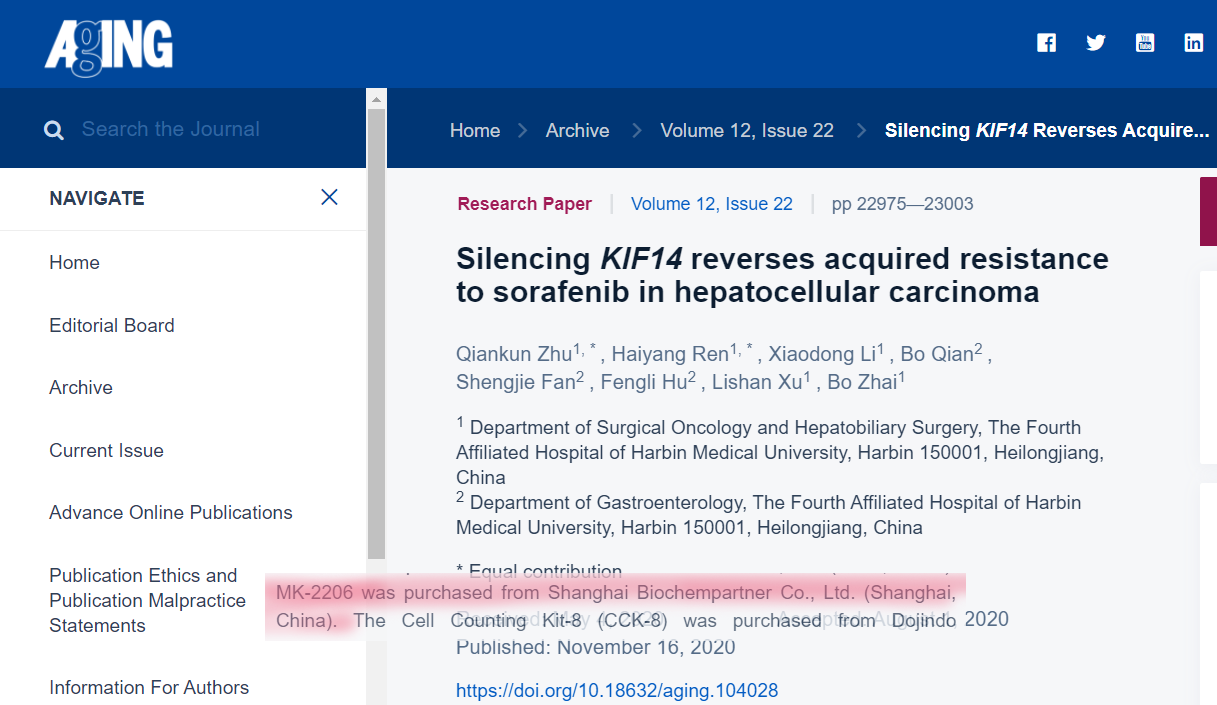Silencing KIF14 reverses acquired resistance to sorafenib in hepatocellular carcinoma

Abstract For nearly a decade, sorafenib has served as a first-line chemotherapeutic drug for the treatment of hepatocellular carcinoma (HCC), but it displays only limited efficacy against advanced drug-resistant HCC. Regorafenib, the first second-line drug approved for treatment after sorafenib failure, can reverse resistance to sorafenib. We used bioinformatics methods to identify genes whose expression was differentially induced by sorafenib and regorafenib in HCC. We identified KIF14 as an oncogene involved in the acquired resistance to sorafenib in HCC and investigated its potential as a target for reversing this resistance. Sustained exposure of resistant HCC cells to sorafenib activated the AKT pathway, which in turn upregulated KIF14 expression by increasing expression of the transcription factor ETS1. Silencing KIF14 reversed the acquired resistance to sorafenib by inhibiting AKT activation and downregulating ETS1 expression by blocking the AKT–ETS1–KIF14 positive feedback loop. Moreover, injection of siKIF14 with sorafenib suppressed growth of sorafenib-resistant HCC tumors in mice. These results demonstrate that targeting KIF14 could be an effective means of reversing sorafenib failure or strengthening sorafenib’s antitumor effects.




